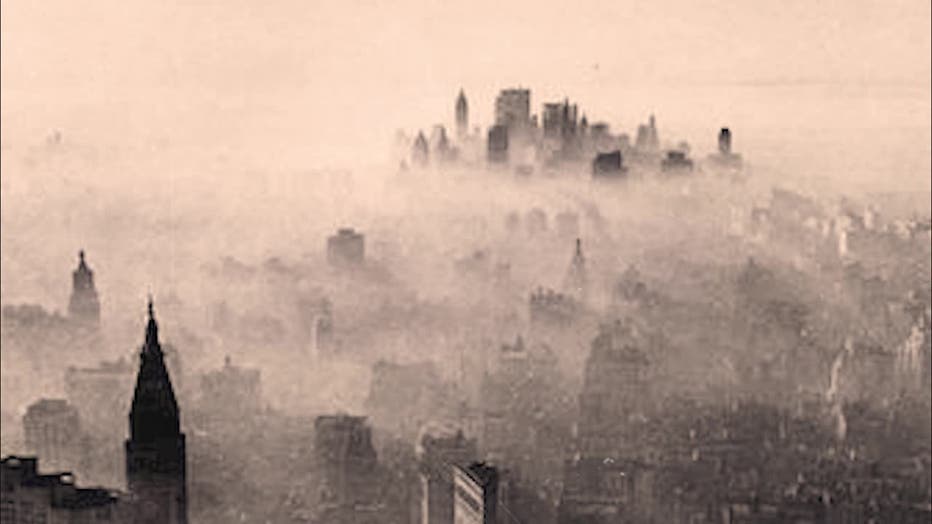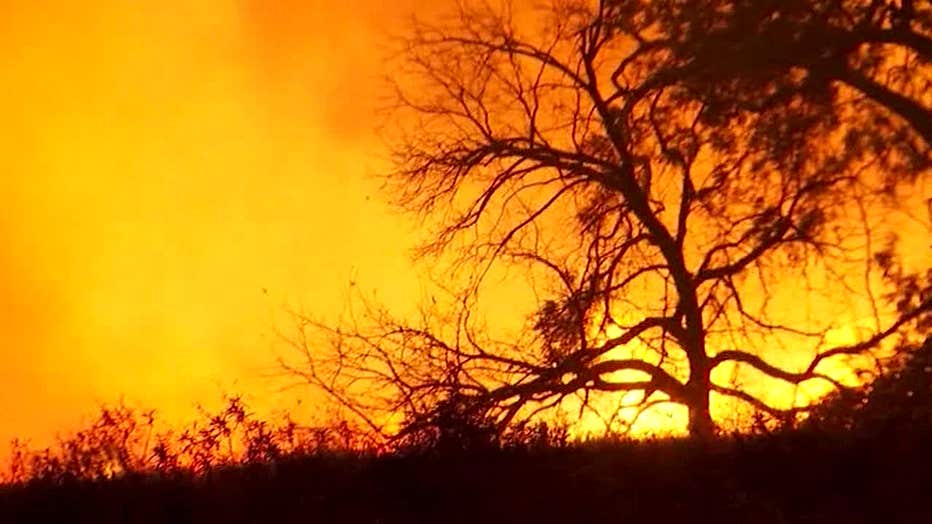NYC air quality threat: Could Canadian wildfire smoke return in summer 2024?

Could Canadian wildfire smoke return this summer?
Could smoke from Canada wildfires once again impact NYC this year? FOX 5 NY's Liv Johnson has a look at summer 2024.
NEW YORK CITY - Could smoke from Canadian wildfires once again impact NYC in 2024?
It's officially summer, which means while the temperatures rise, so does the number on the air quality index.
JUMP TO: REAL-TIME MAP l HEALTH RISKS l WHO SHOULD BE CAREFUL?
"Usually in New York, we have pristine air, which is wonderful, but as that number goes higher, it definitely affects our health and well-being," said New York State Health Commissioner James McDonald.
Poor air quality is often accompanied by a heat wave – that's when an area of high pressure creates an environment with light wind and no rain, causing stagnant air and pollutants to get trapped.

Canadian wildfire smoke envelops NYC
Almost all of New York state is under a air quality alert because of smoke from wildfires in Canada blowing into the area.
In 1966, a layer of smog that consisted of dangerously high levels of carbon monoxide, sulfur dioxide, smoke and haze covered New York City for three days and killed almost 200 people. The environmental disaster made headlines all over the world.

"Whether it's because of an increase in particulate matter, ground level ozone, carbon dioxide, nitrate dioxide – these all contribute to adverse air quality," McDonald said.
That's why the state is encouraging everyone to get in the habit of checking the air quality status at the beginning of the day.
Air quality index: What do the numbers mean?
The numbers show how clean or polluted the air is and stands as a guideline for outdoor activities that day, especially for sensitive groups.

- 0-50: Good, with little to no risk of pollution.
- 51-100: Moderate and really is not a risk to anyone unless they're unusually sensitive to poor air quality. The national weather service will often still issue an air quality alert when we're in this range.
- 101-150: This is a risk for sensitive groups and people with asthma.
- 151-200: A risk for everyone and people who are sensitive are at risk for more severe complications.
- 201-300: Very unhealthy and a risk for everyone.
- 301+: Emergency conditions.
Canada wildfires 2023
Last June, winds blew smoke from unchecked Canadian wildfires into the region, which led the Department of Environmental Conservation to issue an air quality health advisory for all five boroughs.
According to IQAir.com, New York City had the world's worst air quality of any major city in the world back on June 7, with an AQI rating over 350, more than twice as high as Dubai. Wildfire season in Canada runs from April to October, so there is always a chance we may see a day like that again.
Air quality forecast NYC
"In terms of the season, just like there is going to be an active hurricane season, it's looking like it is going to be an active wildfire season," Zachary Iscol, commissioner of the NYC Emergency Management, said in a recent press conference. "It is something that we are looking at and preparing for. It looks like there are a lot of very dry areas of Canada right now that can lead to increased amounts of smoke when you have those types of wildfires."
McDonald says wildfires could become more common and urges everyone to stay alert.

"The climate's changed, and we need to be prepared to develop healthy habits for summer in New York," McDonald said.
NYC air quality map
This map from AirNow.gov shows the current air quality in the New York City area. Click here if you're having trouble viewing the embedded map.
NYC air quality alert
For today's air quality index forecast for New York state, click HERE.
To check the air quality in your area, click HERE.
How does wildfire smoke affect your health?
Wildfire smoke is a complex mixture of gases, particles and water vapor that contains multiple pollutants that can get into the lungs and bloodstream.

Wildfires cause 'unhealthy' NYC air quality
The smoke has traveled into the United States, resulting in a number of air quality alerts issued since May.
There is no evidence of a safe level of exposure to some of the pollutants, meaning that smoke can impact your health even at very low levels.
Inhaling smoke from wildfires can cause headaches, sore and watery eyes, nose, throat, and sinus irritation, chest pains, heart palpitations and more.
Who should be careful?
Exposure to elevated fine particle pollution levels can affect the lungs and heart.
The air quality alerts caution "sensitive groups," a big category that includes children, older adults, and people with lung diseases, such as asthma and chronic obstructive pulmonary disease.
Kids, who often are encouraged to go out and play, "are more susceptible to smoke for a number of reasons," said Laura Kate Bender, the lung association's National Assistant Vice President, healthy air. "Their lungs are still developing, they breathe in more air per unit of body weight."
No one is immune.
FOX Weather contributed to this report.

